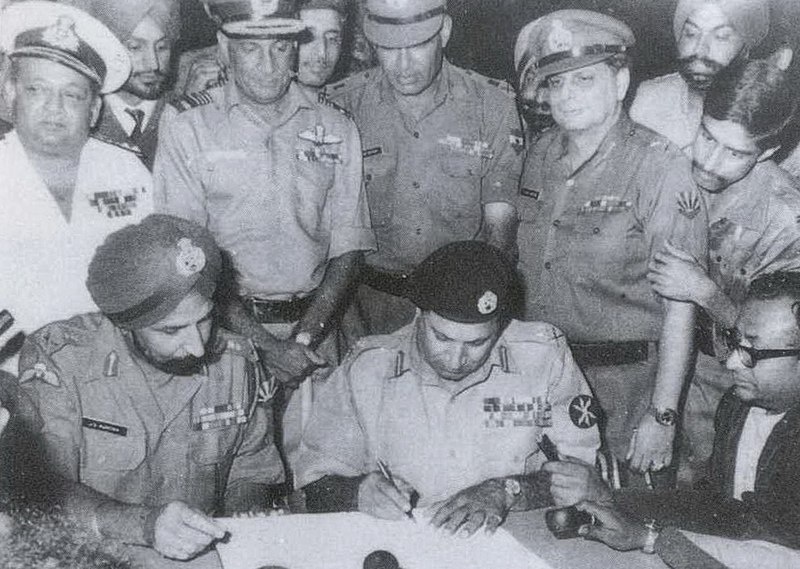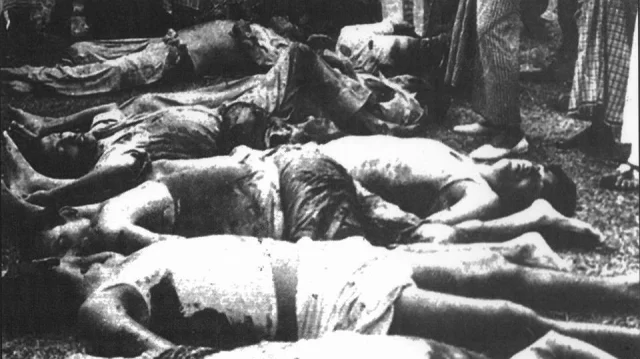The Birth of a Nation on March 26, 1971
March 26, 1971 marks the day Bangladesh declared its independence from Pakistan. This wasn't just another date on the calendar - it was the moment when millions of Bengalis finally said "enough is enough" after years of exploitation and discrimination by West Pakistan.
The declaration came after Pakistan's military launched "Operation Searchlight," a brutal crackdown that targeted students, intellectuals, and civilians in Dhaka. As tanks rolled through the streets and bullets flew, the dream of an independent nation was born in blood and sacrifice.
Radio broadcasts carried the declaration across the country, igniting hope in the hearts of people who had long been treated as second-class citizens. Families huddled around radios, hearing words that would change their lives forever: "This may be my last message. From today, Bangladesh is independent."
Sheikh Mujibur Rahman's Leadership and Declaration
Sheikh Mujibur Rahman, fondly known as "Bangabandhu" (Friend of Bengal), was the driving force behind Bangladesh's independence movement. His thunderous speech at Ramna Race Course on March 7, 1971, practically set the stage for independence without explicitly declaring it.
His famous words still echo today: "The struggle this time is for our freedom. The struggle this time is for our independence."
When Pakistani forces arrested him on March 25, Sheikh Mujib had already prepared for this moment. Before being taken away, he issued the formal declaration of independence that was broadcast by rebel officers. His courage in the face of certain imprisonment (and possible execution) inspired millions to take up the liberation struggle.
Even from prison in Pakistan, Mujib remained the symbolic leader of the independence movement, with his portrait carried by freedom fighters into battle.
The Nine-Month Liberation War
The road to freedom was paved with incredible sacrifice. For nine grueling months, ordinary Bengalis transformed into freedom fighters called "Mukti Bahini." Students dropped their books, farmers left their fields, and teachers abandoned classrooms - all answering the call to defend their homeland.
The Pakistani military unleashed unimaginable horrors:
Targeted killings of intellectuals to "decapitate" Bengali societySystematic rape used as a weapon of warMass executions in cities and villagesDestruction of infrastructure and cultural heritageDespite being outgunned and outmanned, the Mukti Bahini used guerrilla tactics, turning their knowledge of local terrain into a powerful advantage. They disrupted supply lines, ambushed military convoys, and kept the resistance alive through monsoon rains and scorching heat.
International support gradually grew, with India providing critical training and supplies. The war's human cost was staggering - estimates suggest between one and three million Bengalis lost their lives.
Victory on December 16, 1971
After months of bloodshed, victory finally came on December 16, 1971. The Pakistani forces surrendered at the Ramna Race Course in Dhaka (the same venue where Sheikh Mujib had delivered his pivotal speech).
The image of Pakistani Lieutenant General A.A.K. Niazi signing the surrender document became an iconic symbol of Bangladesh's triumph. As Pakistani soldiers laid down their weapons, celebrations erupted across the newborn nation.
India's military intervention proved decisive in the final weeks, creating a combined force that the Pakistani military couldn't withstand. The surrender ceremony marked not just a military victory but the birth certificate of a nation that many thought impossible.
When Sheikh Mujibur Rahman returned from Pakistani prison on January 10, 1972, he found a free but devastated country waiting to rebuild. The journey from independence to establishing a functioning nation had just begun, but Bangladeshis faced it with the same determination that had won them their freedom.
Language Movement of 1952
The seeds of Bangladesh's independence were first sown during the Language Movement of 1952. When Pakistan was formed in 1947, the government declared Urdu as the only state language, completely ignoring Bengali - the language of the majority population in East Pakistan (now Bangladesh).
Students and intellectuals couldn't stand this injustice. On February 21, 1952, they took to the streets of Dhaka to protest. The Pakistani authorities responded with brutal force. Police opened fire on peaceful protesters, killing several students including Rafiq, Salam, Barkat, and Jabbar.
Blood spilled on the streets for the right to speak one's mother tongue. This date is now celebrated worldwide as International Mother Language Day. The movement marked the first time Bengalis united against West Pakistani oppression, planting the idea that they deserved better treatment and respect.
Six-Point Movement
By 1966, frustrations had grown even stronger. Sheikh Mujibur Rahman, who would later become Bangladesh's founding father, stepped forward with a bold plan. He announced the Six-Point Movement - essentially a blueprint for East Pakistan's autonomy.
The six points demanded:
A federal government with real autonomy for East Pakistan
Separate currencies for both wings
Taxation powers for the provincial government
Independent foreign exchange earnings control
Independent trade relations
A separate militia for East Pakistan
These demands rattled the Pakistani establishment. They arrested Sheikh Mujib and many others in the "Agartala Conspiracy Case." But instead of weakening the movement, these arrests only fueled people's determination. The Six-Point Movement transformed scattered discontent into an organized demand for rights.
Mass Uprising of 1969
The Pakistani government's repression backfired spectacularly in 1969. Students across East Pakistan erupted in protests, and soon workers, farmers, and everyday citizens joined in. This wasn't just a student movement anymore - it was a full-blown people's uprising.
The pressure became so intense that the Pakistani government was forced to withdraw the Agartala Conspiracy Case and release Sheikh Mujibur Rahman on February 22, 1969. When Mujib walked free, he was greeted by massive crowds who now called him "Bangabandhu" (Friend of Bengal).
Meanwhile, the students and other political forces had formulated an 11-point program that expanded on Mujib's six points, adding demands for workers' rights and democratic freedoms. The uprising eventually forced Pakistan's military ruler Ayub Khan to step down, showing the power of Bengali unity.
The 1970 Elections and Their Aftermath
The 1970 general election was supposed to transfer power to elected representatives after years of military rule. What happened instead pushed East Pakistan to the breaking point.
Sheikh Mujib's Awami League won a landslide victory, securing 167 out of 169 seats allocated for East Pakistan in the National Assembly. This gave them an absolute majority in the 313-seat assembly.
By all democratic principles, the Awami League should have formed the government. But West Pakistani leaders, especially Zulfikar Ali Bhutto and General Yahya Khan, couldn't accept Bengali leadership. They postponed the assembly session repeatedly.
In response, Bengalis launched non-violent non-cooperation movements. The entire administration in East Pakistan came to a standstill. Sheikh Mujib delivered his historic March 7 speech at Ramna Race Course, effectively setting the stage for independence without explicitly declaring it.
Operation Searchlight and Pakistani Atrocities
While pretending to negotiate with Mujib, the Pakistani military was secretly preparing for a brutal crackdown. On the night of March 25, 1971, they launched "Operation Searchlight" - one of history's most ruthless military actions against civilians.
Pakistani troops stormed Dhaka University, killing students in their dormitories. They targeted Bengali police, intellectuals, and civilians. They used tanks and machine guns against unarmed people. In that single night, thousands were murdered in Dhaka alone.
Before the military action began, Sheikh Mujibur Rahman declared independence, and was then arrested and flown to West Pakistan. The Liberation War had begun.
What followed was nine months of systematic genocide. Pakistani forces targeted Hindus, intellectuals, students, and anyone supporting independence. They used rape as a weapon of war. Conservative estimates put the death toll at 300,000, though many believe it was much higher.
These atrocities only strengthened Bengali resolve. Millions fled to India as refugees, and thousands joined the Mukti Bahini (freedom fighters) to resist the Pakistani occupation.









0 تعليقات